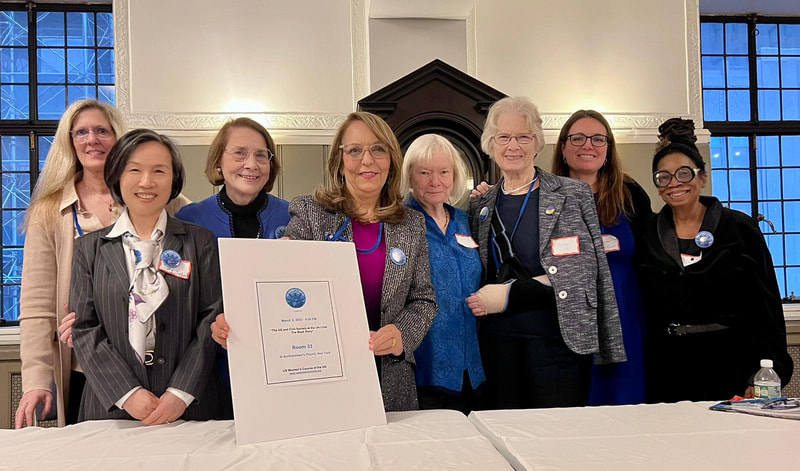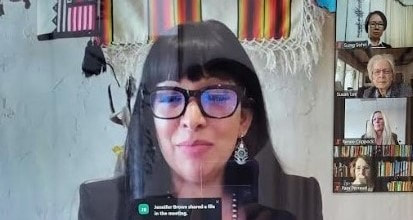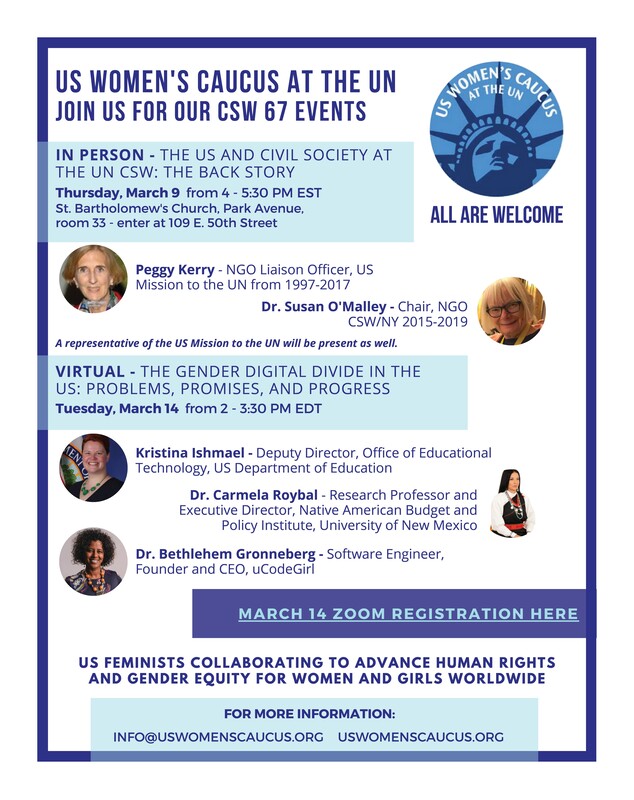|
https://mailchi.mp/550c5c01da06/march-2023-newsletter?e=eea39eb1ed
0 Comments
The UN Commission on the Status of Women (CSW) held its annual session from March 6 to 17 at the UN headquarters in New York. At the same time as the official meetings for UN CSW member countries, women from all over the world gathered, in-person and virtually, to think about and discuss this year’s theme: Innovation and technological change, and education in the digital age for achieving gender equality and the empowerment of all women and girls. For the first time, this year’s meeting was hybrid.
At the NGO CSW Forum, the US Women’s Caucus at the UN (USWC) held two events. The first was an in-person event on March 9 with the topic of “US and Civil Society at the UN CSW: The Back Story.” The second topic was discussed at an online event on March 14 and was titled “Gender Digital Divide in the US: Problems, Promises, and Progress.” Both events were a solid success. A big thanks goes out to all speakers and participants! Sung is a Caucus member. Recording of USWC's March 14 virtual event at the CSW: https://www.youtube.com/watch?v=wyNlyQMWZvQ Click here for this and past years’ Agreed Conclusions, which are the international outcomes of negotiations among the UN CSW member states to advance policies toward women and girls. Click here for the UN Women’s press release on the conclusion of CSW 67. Click here for “Explanation of Position on the Agreed Conclusions of the 2023 CSW” by Sofija Korać, Senior Human Rights and Health Adviser at US Mission to the UN and US Advisory for Economic and Social Affairs. On March 6, the West Hollywood City Council adopted a resolution opposing the plan by Tokyo Electric Power Company (TEPCO) and the Japanese government to discharge wastewater from the Fukushima Daiichi Nuclear Plant into the Pacific Ocean. When the Fukushima nuclear disaster occurred in 2011 at the Fukushima Daiichi Nuclear Power Plant in Ōkuma, Fukushima, Japan, radioactive material caused significant human suffering and rendered large stretches of land uninhabitable because TEPCO and the Nuclear and Industrial Safety Agency failed to design the plant to withstand a massive tsunami. This year on Jan. 13, Japan repeated its intention to release Fukushima Daiichi Nuclear Plant wastewater into the Pacific Ocean beginning this spring or summer and to continue for the next few decades. The first official announcement was made on April 13, 2021.
Oceans are connected, and the dumped wastewater in the Pacific Ocean will flow to U.S. waters. In the U.S., the 1972 Clean Water Act (CWA) or Federal Water Pollution Control Act 1972 regulates the discharges of pollutants into the waters of the U.S. and creates quality standards for surface waters. At a state level, the California Legislature enacted the California Coastal Sanctuary Act in 1994 (Statutes of 1994, Chapter 970) to protect the California coast. The U.S. Environmental Protection Agency must examine the TEPCO plan thoroughly to protect people and the environment. As a grassroots effort, a group of U.S. organizations has launched the campaign “Send a Postcard to Japan” with the messages of your concerns over the discharge sent to Futaba-machi Mayor Izawa, Okuma-machi Mayor Yoshida, and the Fukushima Governor Masao Uchibori in Japan. The defunct nuclear power plant is located in Futaba-machi and Okuma-machi. To join this campaign, contact Tsukuru Fors at [email protected] at the Pacific Asian Nuclear-Free Peace Alliance. |
CategoriesCategories |
Proudly powered by Weebly




 RSS Feed
RSS Feed